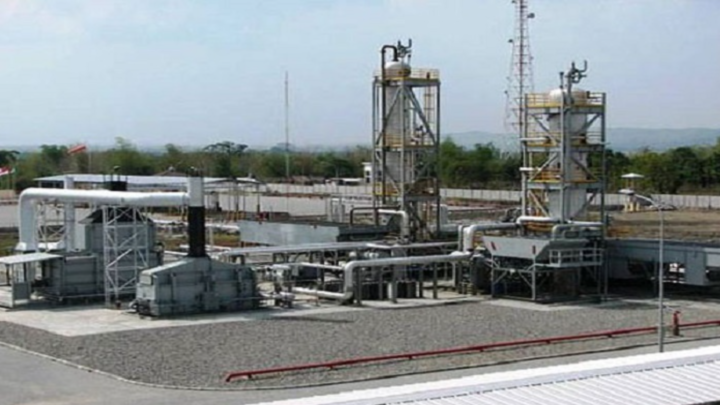Nigeria’s energy landscape received a major boost as the National Midstream and Downstream Petroleum Regulatory Authority (NMDPRA) successfully attracted $1.2 billion in investment for modular refineries, according to DAPPMAN, the Dangote Petroleum Products Marketing Company. The inflows, representing a milestone in local refining capacity development, highlight growing investor confidence in private-sector-driven solutions to longstanding fuel security challenges.
DAPPMAN President, speaking at an industry briefing, applauded the NMDPRA’s proactive regulatory framework, noting that the investment signals fresh momentum in the downstream sector. He disclosed that multiple modular refinery projects are now at advanced development stages, with some nearing commissioning. These refineries—typically smaller, modular facilities offering output ranging from 5,000 to 30,000 barrels per day—are positioned as key to plugging domestic refining gaps and reducing dependence on imported petrol.

Since its operational launch in 2023, the NMDPRA has adopted a policy approach centered on standard setting, licensing transparency, and streamlined project approvals. This approach has paved the way for greater private sector participation in refining—breaking away from the historical dominance of state-owned refineries. The authority’s role in standardizing equipment specifications, compliance expectations, and safety regulations has provided a foundation upon which smaller investors have deployed capital with confidence.
According to DAPPMAN, the $1.2 billion investment pool comprises a mix of local equity, private sector financing, and strategic funding from developmental and trade finance institutions. The projects span a variety of formats, including greenfield builds by locally incorporated companies; brownfield upgrades of existing structures; and joint-venture deals with international technical partners. Each refiner is expected to serve consistent off-takers in the domestic market, with some teams also targeting regional export opportunities.
Several modular refinery operators have completed engineering studies, sourcing contractors, and mobilizing equipment toward site locations in southwestern and southeastern Nigeria. A handful have already initiated civil works, anticipating first product rollouts in the next 12 to 18 months. These refiners are expected to supply key petroleum products such as Premium Motor Spirit (PMS), Automotive Gas Oil (diesel), and Dual Purpose Kerosene (DPK), complementing supply from the Dangote Refinery and government-owned complexes.
DAPPMAN’s assessment suggests that modular refineries could alleviate pressure on Nigeria’s fuel import bill and dampen the volatility of global oil price shocks. Given their delivery lead time is shorter than large-scale refinery projects, these facilities offer near-term relief to fuel supply disruptions. Additionally, they promote job creation, local technical skills development, and backward linkages in logistics and distribution.
Yet, the success of the modular refinery model hinges on several critical factors. Consistent access to crude feedstock, logistical corridors, offtake licensing, environmental compliance, and long-term policy stability are essential. DAPPMAN noted that while NMDPRA’s licensing environment has improved, refiners still face challenges securing long-term financing, negotiating more favourable foreign exchange arrangements, and obtaining credible power supply and pipeline connectivity.
To address these gaps, the NMDPRA is coordinating with the Central Bank of Nigeria to explore credit facilities and FX hedging instruments tailored to modular refiners. Discussions are also underway with infrastructure partners to secure priority rights for power and pipeline tie-ins. The Authority is working to institutionalize commitments with federal and state governments to secure land tenure and local permitting.
While the modular refinery pipeline remains promising, observers caution against complacency. DAPPMAN emphasized the need for continuous surveillance of construction quality, compliance auditing, and technical certification. Learning from past global disappointments in facility commissioning, the authority and project sponsors are working with international engineering firms to ensure safety and operational reliability.
A broader concern is the nascent nature of modular refining in Nigeria’s ecosystem. Integrating these smaller units into the national petroleum supply architecture will require coordination with logistics firms, independent marketers, and terminal operators. Harmonization of distribution networks and pricing mechanisms is being advanced by NMDPRA to ensure these facilities can sell into market seamlessly.
In regional terms, the $1.2 billion in investment marks one of the most successful waves of private-sector activity in Africa’s downstream sector. Neighboring countries such as Ghana, Cote d’Ivoire, and Senegal are observing its development closely, with potential implications for cross-border fuel trade and sub-Saharan refining policy design.
DAPPMAN views the current wave of developments as a turning point. By demonstrating that modular refiners can bring capital, job creation, and product supply capability to the market within tighter timelines, Nigeria is charting a new model that can run alongside mega-scale refineries. While government-backed facilities retain importance, modular refineries are revealing themselves to be vital pieces in solving fuel supply fragmentation.
As the sector progresses, the role of NMDPRA will remain central. Its regulatory agility, commitment to stakeholder engagement, and ability to coordinate across government agencies will be key to fully unlocking the promise of modular refining. The $1.2 billion investment figure is both an achievement and a starting point—pointing toward a future where privatized, decentralized refining becomes a sustainable feature of Nigeria’s energy economy.
With the country’s population projected to grow and demand for mobility fuels expected to rise, modular refinery progress offers serious upside potential. If successfully executed, the current wave of projects may finally shift Nigeria’s refining balance, reduce reliance on fuel imports, and set a precedent for private-sector-led energy infrastructure in Africa.
Support InfoStride News' Credible Journalism: Only credible journalism can guarantee a fair, accountable and transparent society, including democracy and government. It involves a lot of efforts and money. We need your support. Click here to Donate
